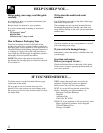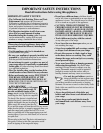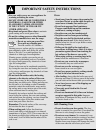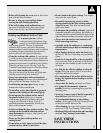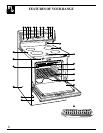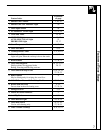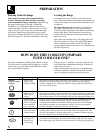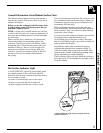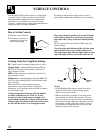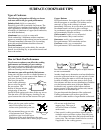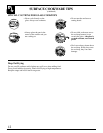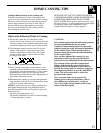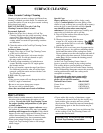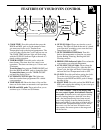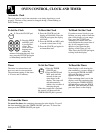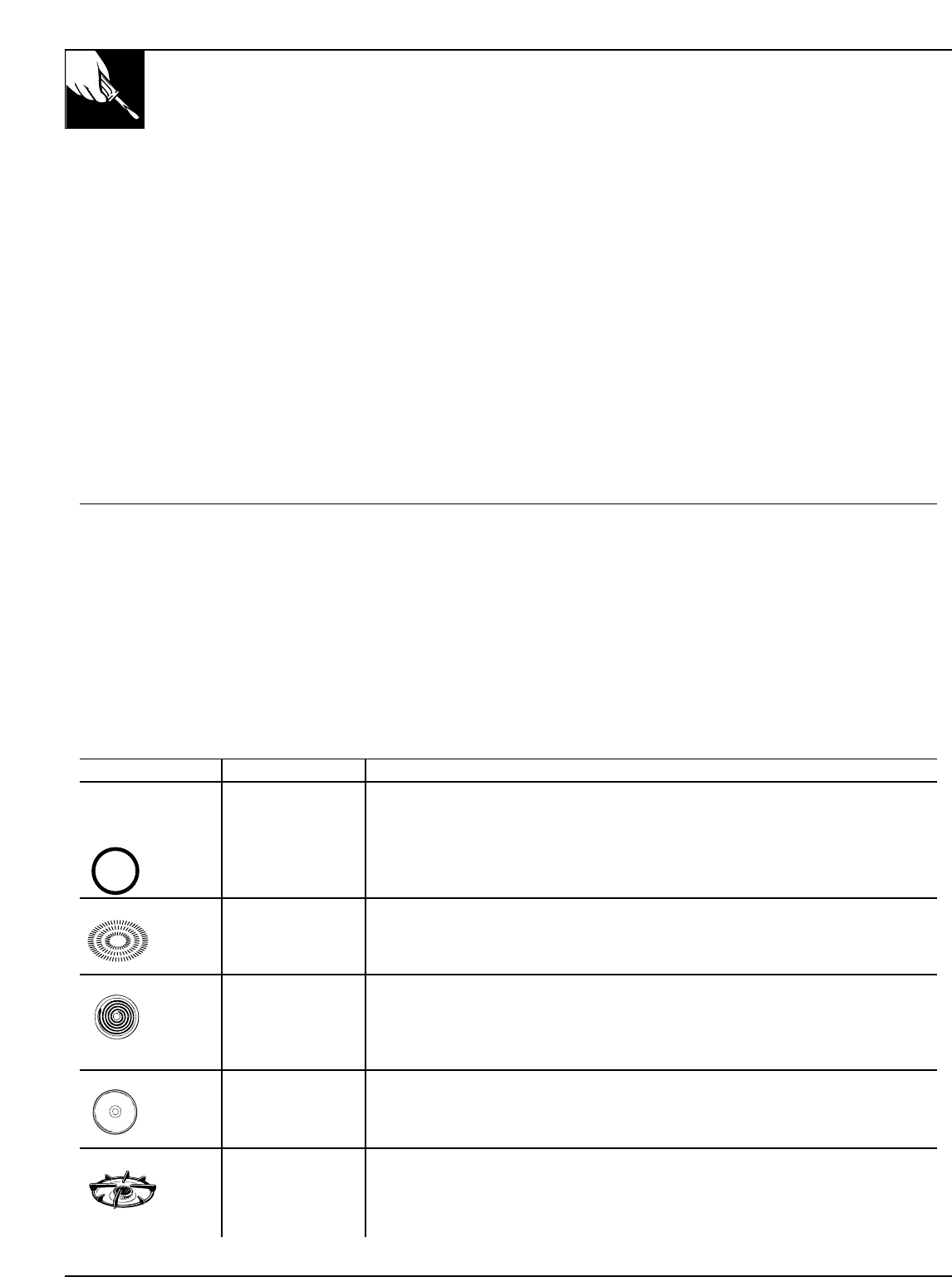
PREPARATION
Flooring Under the Range Leveling the Range
Your range, like many other household items,
is heavy and can settle into soft floor coverings
such as cushioned vinyl or carpeting. When moving
the range on this type of flooring, it should be
installed on a 1/4-inch-thick sheet of plywood (or
similar material) as follows: When the floor covering
ends at the front of the range, the area that the range
will rest on should be built up with plywood to the
same level or higher than the floor covering. This will
allow the range to be moved for cleaning or servicing.
Leveling screws are located on each corner of the
base of the range. Remove the bottom drawer and you
can level the range on an uneven floor with the use of
a nutdriver.
To remove drawer, pull the drawer out all the way,
tilt up the front and take it out. To replace drawer,
insert the glides at the back of the drawer beyond stop
on the range glides. Lift the drawer if necessary to
insert easily. Let the front of the drawer down, then
push in to close.
One of the rear leveling screws will engage the Anti-
Tip device (allow for some side to side adjustment).
Allow a minimum clearance of 1/8″ between the
range and the leveling screw that is to be installed into
the Anti-Tip device.
HOW DOES THIS COOKTOP COMPARE
WITH YOUR OLD ONE?
Type of Cooktop Description How It Works
Radiant Electric coils Heat travels to the glass surface and then to the cookware, so pans must be flat on
(Glass Ceramic) under a glass- the bottom for good cooking results. The glass cooktop stays hot enough to
Cooktop ceramic cooktop. continue cooking after it is turned off. Remove the pan from the surface unit if
you want cooking to stop.
Induction High frequency Pans must be made of ferrous metals (metal that attracts a magnet). Heat is
induction coils produced by a magnetic circuit between the coil and the pan. Heats up right away
under a glass and changes heat settings right away, like a gas cooktop. After turning the control
surface. off, the glass cooktop is hot from the heat of the pan, but cooking stops right away.
Electric Coil Flattened metal Heats by direct contact with the pan and by heating the air under the pan. For best
tubing containing cooking results, use good quality pans. Electric coils are more forgiving of
electric resistance warped pans than radiant or solid disks. Heats up quickly but does not change
wire suspended heat settings as quickly as gas or induction. Electric coils stay hot enough to
over a drip pan. continue cooking for a short time after they are turned off.
Solid Disk Solid cast iron Heats by direct contact with the pan, so pans must be flat on the bottom for good
disk sealed to the cooking results. Heats up and cools down more slowly than electric coils. The
cooktop surface. disk stays hot enough to continue cooking after it is turned off. Remove the pan
from the solid disk if you want the cooking to stop.
Gas Burners Regular or sealed Flames heat the pans directly. Pan flatness is not critical to cooking results, but
gas burners use pans should be well balanced. Gas burners heat the pan right away and change
either LP gas heat settings right away. When you turn the control off, cooking stops right away.
or natural gas.
Your new cooktop has a radiant glass ceramic cooktop.
If you are used to cooking with gas burners or electric
surface units, you will notice some differences when
you use the radiant cooktop.
The best types of cookware to use, plus heat-up and
cool-down times, depend upon the type of burner or
surface unit you have.
The following chart will help you to understand the
differences between radiant cooktops and any other
type of cooktop you may have used in the past.
8




